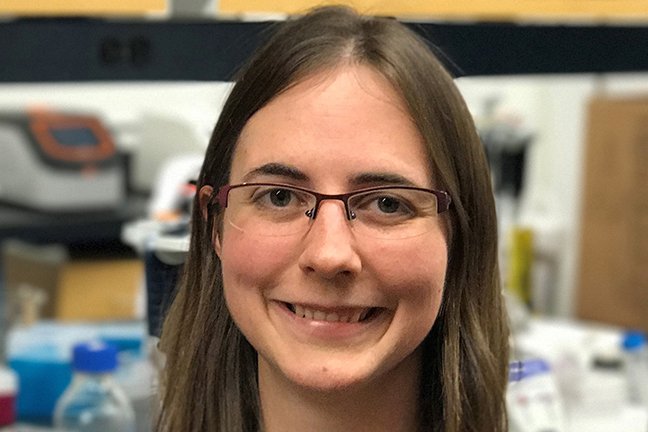Professor Ashleigh Theberge
Professor Ashleigh Theberge
Department of Chemistry
University of Washington
Host: Professor Christy Haynes
Studying cell signaling in complex environments using open microfluidics
Small molecule and protein signals provide a rich vocabulary for cellular communication. To better understand signaling processes in both normal and disease states, we have developed new open microfluidic platforms that accommodate the culture of multiple cell types in microfabricated compartments while allowing soluble factor signaling between cell types. Our microscale culture systems allow a 10- to 500-fold reduction in volume compared to conventional assays, enabling experiments with limited cells from patient samples. Furthermore, our devices are open, pipette accessible, interface with high resolution microscopy, and can be manufactured at scale by injection molding, increasing translation to collaborators in biological and clinical labs without chemistry and engineering expertise. This talk will also highlight our use of open microfluidic principles to develop novel strategies for hydrogel 3D printing, with applications in biology and materials science. Finally, I will share a system we have recently developed for at-home blood sampling and transcriptomics, with relevance to conducting human subjects research during the COVID-19 pandemic.
Professor Theberge
Ashleigh Theberge is assistant professor of chemistry and adjunct assistant professor of urology at the University of Washington. She holds a Bachelor of Arts degree from Williams College and a doctorate from the University of Cambridge. Her group develops microscale culture and analysis methods to study cell-cell, cell-extracellular matrix, and host-microbe interactions. She is also developing new methods for 3D printing and at home blood sampling/transcriptomics.
Selected awards include a National Institutes of Health (NIH) K Career Development Award (2014), Kavli Microbiome Ideas Challenge Award grant (2017), NIH Maximizing Investigators’ Research Award (MIRA) for Early Stage Investigators (2018), Beckman Young Investigator Award (2018), and Packard Fellowship for Science and Engineering (2019). She was elected co-chair for the Gordon Research Conference on Microfluidics in 2021.
